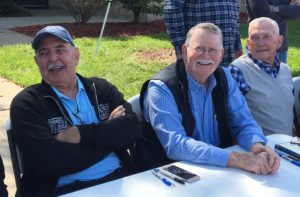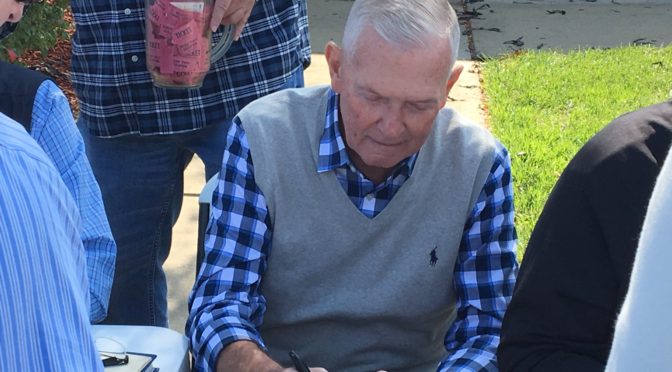Voice of Joe Keough
By Greg Echlin
The baseball glory that Joe Keough figured would be brief is still remembered 50 years later. He was one of the original Kansas City Royals in 1969 and died on Sept. 9 at the age of 73.
In the first game in the history of the Royals, as one of four expansion teams that year (the Seattle Pilots, Montreal Expos and San Diego Padres were the other three), Keough singled home Joe Foy to end a 12-inning ballgame at Kansas City’s Municipal Stadium, a 4-3 victory over the Minnesota Twins. Keough called it his “15 minutes of fame.”
The truth is Keough wasn’t in the best frame of mind when the game started. He batted .350 in spring training and felt he had earned a spot in the opening day lineup. Keough split time between right and center that year, but the newly-acquired Lou Piniella was plugged into center for the season opener and leading off. Piniella, the eventual American League Rookie of the Year in ’69, had four hits that day. Starting in right was Bob Oliver, mostly an outfielder that year but more identified in the ensuing years as a first baseman. The leftfielder was the late Ed Kirkpatrick, the Royals first home run champion with 14 in ’69 and, as roommates, a close friend of Keough.
“I came out of spring training wanting to start very badly,” said Keough in a 2011 interview. “Our manager that year, Joe Gordon, decided not to start me and I was a little upset about that.”
Keough actually broke into the big leagues with the Athletics the year before, the first year they played in the Bay Area after moving from Kansas City. One of Keough’s biggest regrets was not being able to enjoy the success as a teammate he envisioned with budding superstars Reggie Jackson and Jim “Catfish” Hunter. The Royals made Keough their eighth pick in the expansion draft.

“I remember being in Puerto Rico, I believe, when I got the news from (Royals GM) Cedric Tallis that I had been drafted by the Royals,” said Keough, a left-handed hitter who batted .187 in ‘69. “Meanwhile, being a naïve kid, I didn’t even know what drafted into some other club meant.”
Keough, however, developed a close camaraderie with his Royals teammates on and off the field. In 1970, Keough was hitting .322 when a broken leg at the end of June sidelined him for the rest of year and derailed his career. He spent two more seasons with the Royals with limited duty, then made a brief five-game appearance with the Chicago White Sox in 1973 to close out his major league career.
“That was some of the best times of my life,” said Keough who returned to Kansas City last summer for an autograph-signing gathering with a few of his ’69 teammates in Lenexa, Kansas.
